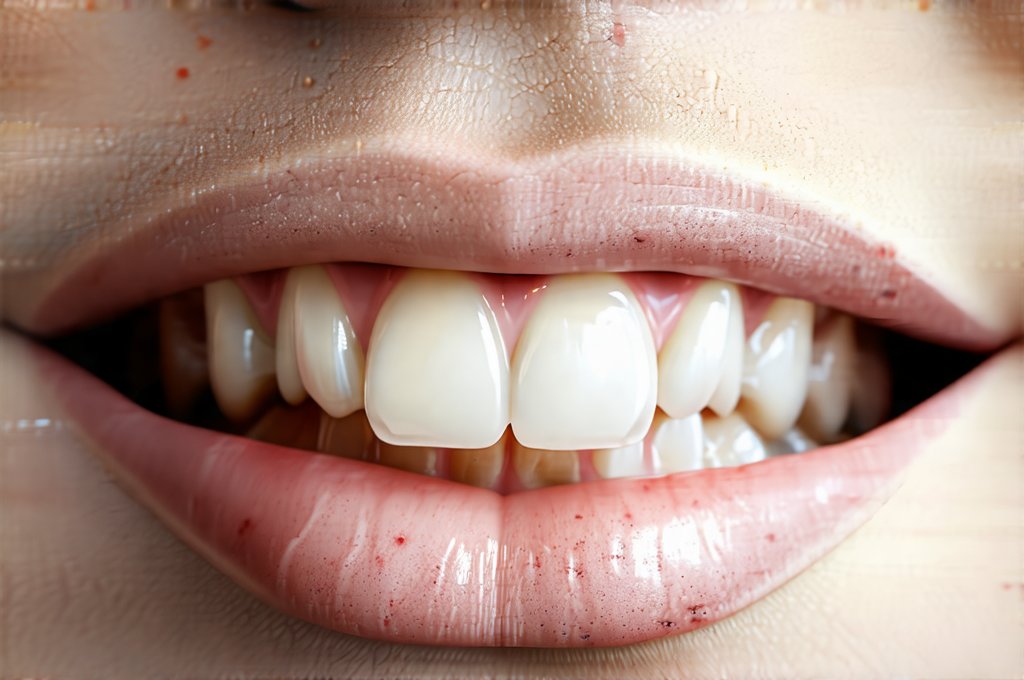Gastroesophageal reflux disease (GERD) and canker sores – seemingly unrelated conditions, yet many individuals report experiencing both simultaneously, or one flaring up in conjunction with the other. This raises a compelling question: is there a genuine digestive link between these two frustrating ailments? While not universally acknowledged as a direct cause-and-effect relationship, growing evidence suggests a complex interplay between GERD, gut health, immune function, and the development of recurrent canker sores (also known as aphthous ulcers). Understanding this potential connection requires delving into the mechanisms behind each condition and exploring how they might influence one another. It’s important to note that individual experiences vary significantly, and what triggers one person’s canker sores or GERD may not affect another in the same way.
The discomfort of heartburn, regurgitation, and indigestion associated with GERD is well-known, but its broader systemic effects are often underestimated. Similarly, while canker sores are typically considered a minor nuisance, for some individuals they represent a chronic source of pain and disruption to daily life. The frustration stems from their unpredictable nature and lack of definitive understanding regarding their origin. This article will explore the potential digestive links between GERD and canker sores, examining possible contributing factors and offering insights into managing both conditions. It’s crucial to consult with healthcare professionals for personalized diagnosis and treatment plans; this information is intended for educational purposes only.
The Role of Stomach Acid & Esophageal Inflammation
GERD occurs when stomach acid frequently flows back up into the esophagus – the tube connecting your mouth to your stomach. This backflow, or acid reflux, irritates the lining of the esophagus, causing inflammation and a range of symptoms. While heartburn is the most common symptom, GERD can also manifest as difficulty swallowing, chronic cough, hoarseness, and even dental erosion over time. But what does this have to do with mouth ulcers? The theory centers around several potential mechanisms. First, repeated exposure to stomach acid – even in small amounts that don’t cause noticeable heartburn – can directly irritate the delicate mucous membranes of the mouth, potentially triggering or exacerbating canker sores in susceptible individuals.
- This is particularly relevant for those who experience “silent reflux,” where acid rises without typical symptoms.
- The acidic environment can also alter the oral microbiome, creating an imbalance that favors ulcer formation.
- Furthermore, chronic inflammation associated with GERD isn’t confined to the esophagus; it’s a systemic phenomenon that can impact immune function and potentially increase susceptibility to mouth ulcers.
The esophageal inflammation itself plays a role too. As the body attempts to heal the damaged esophageal lining, it triggers an inflammatory response. This prolonged state of inflammation can weaken the immune system and disrupt its ability to effectively regulate oral health, making individuals more prone to developing canker sores. It’s also worth considering that many medications used to manage GERD – proton pump inhibitors (PPIs) and H2 receptor antagonists – can alter gut bacteria composition, which, as we’ll discuss later, may have indirect implications for canker sore development. Understanding gut brain connection is key to understanding these complex interactions.
Gut Health, Immunity & Aphthous Ulcers
The emerging field of microbiome research highlights the profound influence of gut bacteria on overall health, including immune function and oral health. A healthy gut harbors a diverse community of beneficial bacteria that play crucial roles in digestion, nutrient absorption, and immune regulation. Conversely, an imbalance in gut bacteria – known as dysbiosis – has been linked to numerous chronic conditions, including inflammatory bowel diseases, autoimmune disorders, and even mental health issues. How does this relate to canker sores? A disrupted gut microbiome can compromise the immune system’s ability to regulate inflammation effectively, making individuals more vulnerable to developing oral ulcers.
Canker sores are often considered an immune-mediated condition, meaning that the immune system mistakenly attacks the lining of the mouth, leading to ulcer formation. While the exact trigger remains elusive, factors like stress, trauma, nutritional deficiencies (particularly vitamin B12, iron, and folate), and food sensitivities can all contribute. A compromised gut microbiome further exacerbates this immune dysregulation, creating a perfect storm for canker sore development. Moreover, medications used to treat GERD, especially PPIs, are known to alter the composition of the gut microbiome, potentially reducing bacterial diversity and increasing susceptibility to dysbiosis. This is not to say that these medications should be avoided – they are often essential for managing GERD symptoms – but it highlights the importance of considering their potential impact on gut health. Many wonder is there a connection between these systems?
The connection between gut health and canker sores extends beyond immune function. The gut-oral axis, a bidirectional relationship between the gut microbiome and oral microbiome, is increasingly recognized as important. Dysbiosis in the gut can influence the composition of the oral microbiome, potentially creating an environment that promotes ulcer formation. Maintaining a healthy diet rich in probiotics (found in fermented foods like yogurt and kefir) and prebiotics (fibers that feed beneficial bacteria) can support both gut health and oral health, potentially reducing the frequency and severity of canker sores. Thinking about best time to take probiotics could also be helpful.
Nutritional Deficiencies & Canker Sores
Several nutritional deficiencies have been consistently linked to an increased risk of developing canker sores. Iron deficiency is perhaps the most well-established link, with studies showing a higher prevalence of iron deficiency anemia in individuals who experience frequent oral ulcers. Vitamin B12 and folate deficiencies are also frequently implicated, as these vitamins play vital roles in cell growth and repair. A lack of these nutrients can impair wound healing and increase susceptibility to ulcer formation. Zinc is another important mineral for immune function and tissue repair; low zinc levels have been associated with increased risk of canker sores.
The challenge lies in identifying the underlying cause of these deficiencies. GERD itself can interfere with nutrient absorption, particularly iron, due to inflammation and potential damage to the intestinal lining. Long-term use of PPIs may also impair nutrient absorption, as stomach acid is necessary for breaking down certain nutrients. Addressing these nutritional deficiencies through dietary changes or supplementation – under the guidance of a healthcare professional – can be an important part of managing both GERD and canker sores.
- Consider incorporating iron-rich foods like lean meats, beans, and spinach into your diet.
- Ensure adequate intake of vitamin B12 through sources like fish, poultry, and fortified cereals.
- Include folate-rich foods such as leafy green vegetables and citrus fruits.
- Explore zinc supplementation if blood tests indicate a deficiency.
Stress & The Gut-Brain Connection
Stress is a well-known trigger for both GERD and canker sores. When we experience stress, our bodies release cortisol – the “stress hormone” – which can disrupt gut function and weaken the immune system. In individuals with GERD, stress can exacerbate acid reflux symptoms by increasing stomach acid production and relaxing the lower esophageal sphincter. Simultaneously, chronic stress can compromise immune function, making us more susceptible to developing canker sores. The connection between stress, the gut, and the brain is known as the gut-brain axis.
This bidirectional communication pathway means that emotional states can influence gut health, and vice versa. Chronic stress can lead to dysbiosis in the gut microbiome, further weakening the immune system and increasing susceptibility to both GERD and canker sores. Managing stress through techniques like mindfulness meditation, yoga, deep breathing exercises, or regular physical activity can be beneficial for improving both digestive health and oral health. It’s also important to consider how to recover from stress related flare ups.
Identifying & Avoiding Triggers
Identifying and avoiding triggers is crucial for managing both GERD and canker sores. For GERD, common triggers include fatty foods, spicy foods, caffeine, alcohol, chocolate, and large meals. Keeping a food diary can help identify specific foods that exacerbate your symptoms. Similarly, for canker sores, potential triggers include acidic foods (citrus fruits, tomatoes), salty foods, nuts, chocolate, coffee, and certain toothpastes containing sodium lauryl sulfate.
- Pay attention to when canker sores appear in relation to dietary changes or other factors like stress.
- Consider eliminating suspected trigger foods one at a time to see if it makes a difference.
- Maintain good oral hygiene practices, including gentle brushing with a soft-bristled toothbrush and avoiding harsh mouthwashes.
- If you suspect food sensitivities, consult with an allergist or registered dietitian for testing and guidance.
Is alcohol a trigger for your digestive issues? It’s important to be mindful of this potential connection. Also, consider whether coconut is a trigger.
It’s important to reiterate that the link between GERD and canker sores is complex and multifaceted. While there’s no definitive proof of a direct cause-and-effect relationship, the evidence suggests a significant interplay between digestive health, immune function, and oral health. By addressing underlying factors like nutritional deficiencies, stress, and gut dysbiosis, individuals may be able to reduce the frequency and severity of both conditions. Consulting with healthcare professionals for personalized diagnosis and treatment plans remains essential. Is there a test you can take to understand your gut health?


















